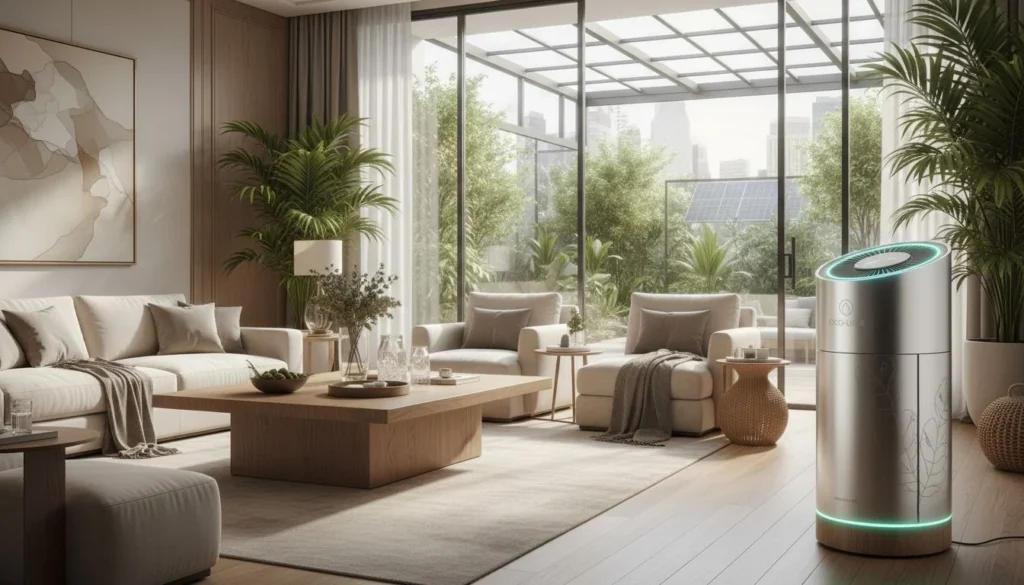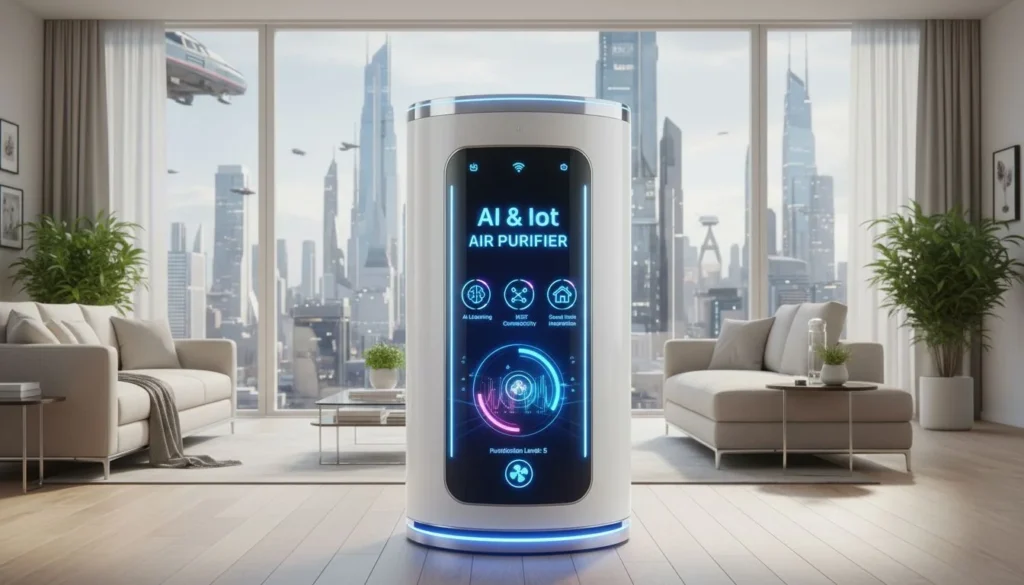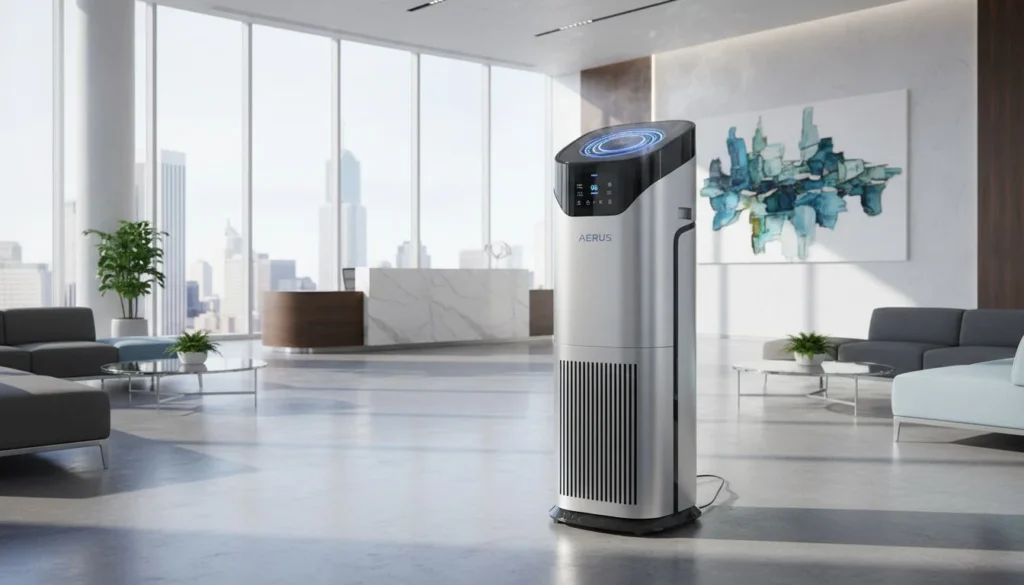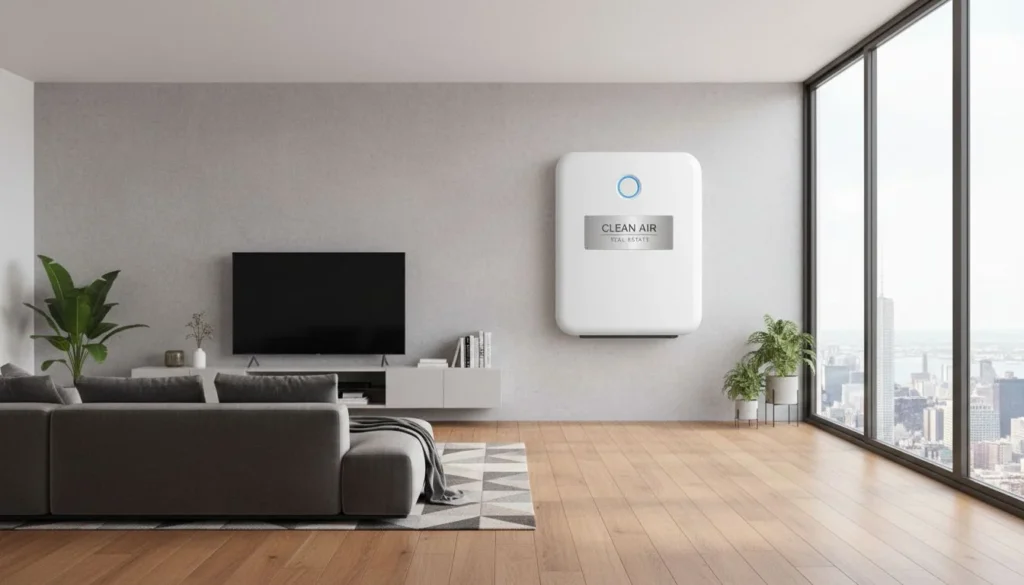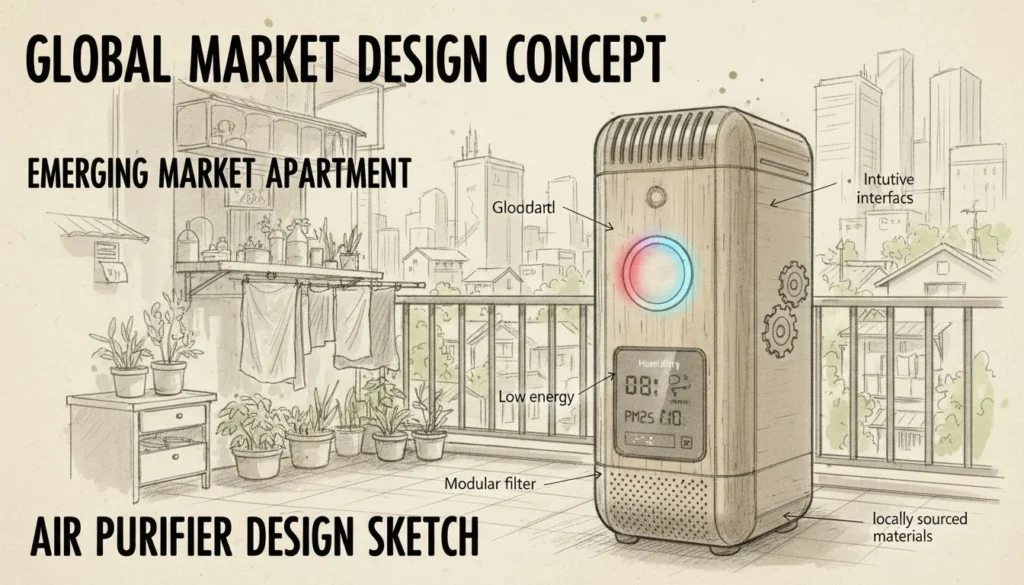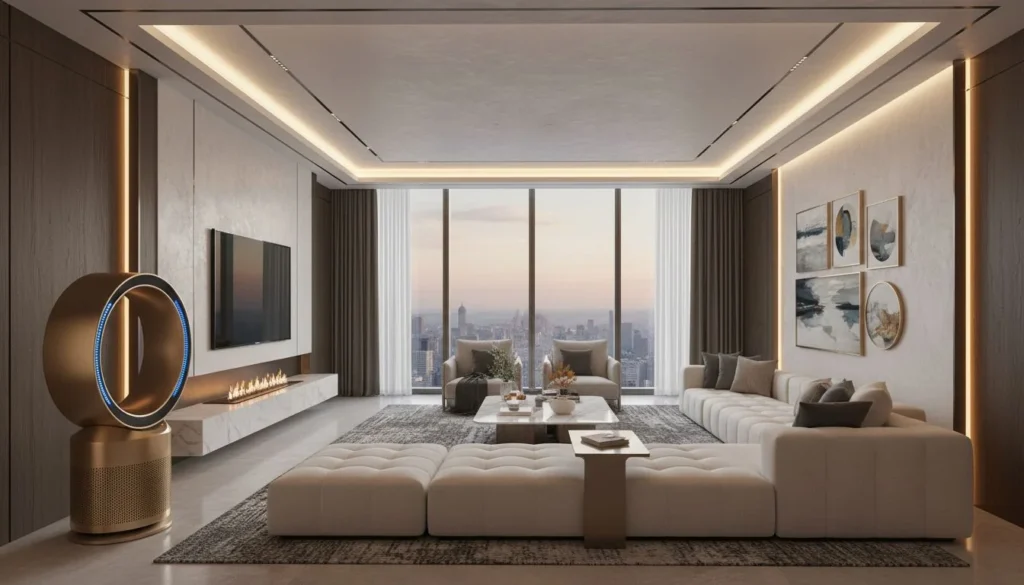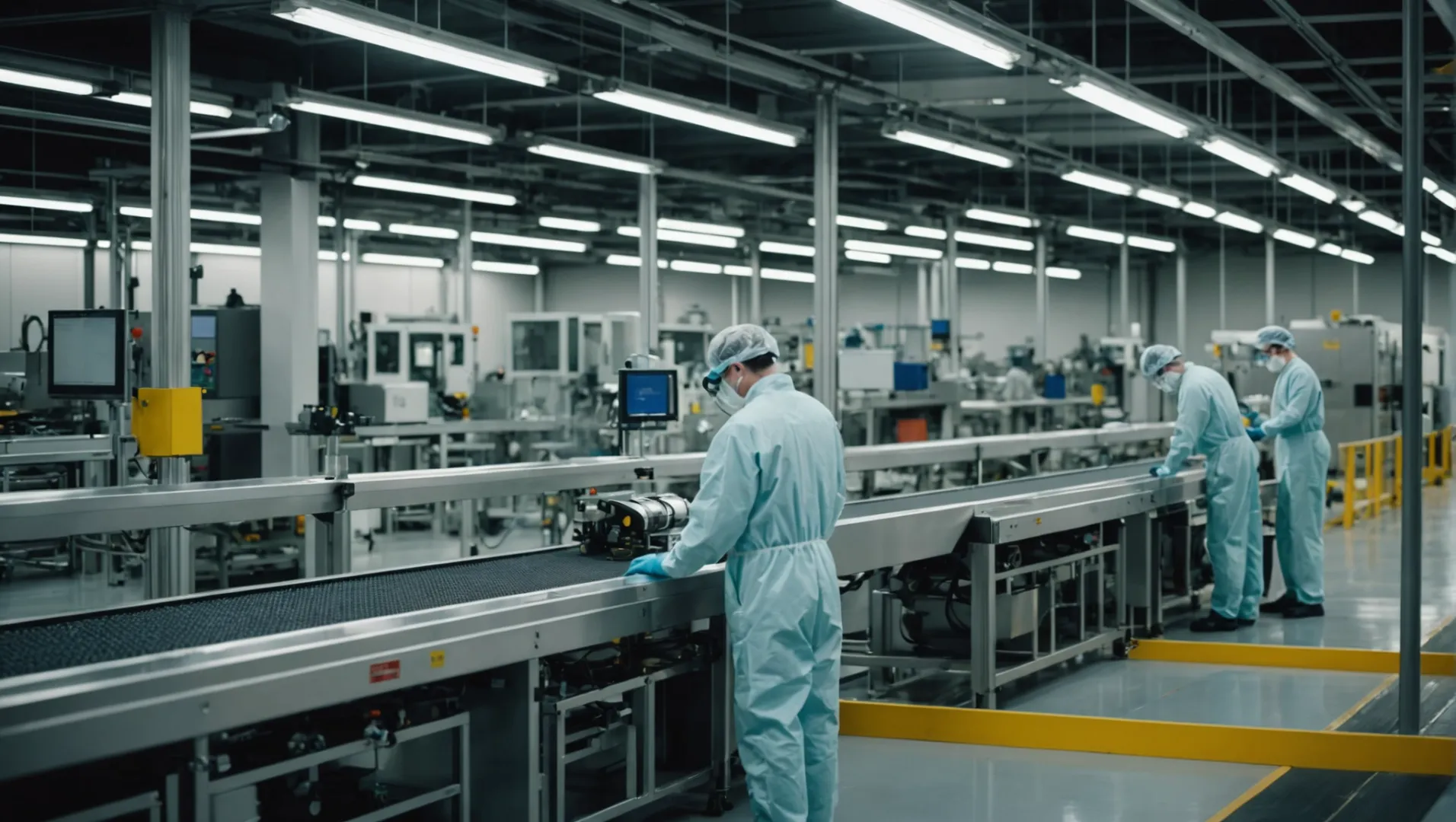
Imaginez que vous entriez dans un hôpital où chaque respiration vous semble être un pas vers la sécurité. C'est le pouvoir de HEPA filtres !
HEPA La fabrication de filtres est vitale pour les équipementiers en raison de son rôle dans la qualité de l'air, la conformité aux normes de sécurité et la possibilité de personnaliser les filtres pour des applications spécifiques. Ces filtres capturent les particules nocives, ce qui les rend indispensables dans les environnements critiques.
Mais au-delà de leur efficacité bien connue se cache un monde de subtilités de fabrication. Rejoignez-moi pour approfondir les technologies et les options de personnalisation qui distinguent ces filtres.
Les filtres HEPA capturent 99,97% des particules de 0,3 micron ou plus.Vrai
Cette efficacité est une norme pour les filtres HEPA, garantissant une haute qualité de l'air.
Comment faire HEPA Les filtres garantissent la conformité avec les réglementations en matière de santé ?
HEPA Les filtres jouent un rôle crucial dans le respect des réglementations sanitaires strictes, en fournissant un environnement propre et sûr dans diverses industries.
HEPA sont conformes aux réglementations sanitaires en capturant au moins 99,97% des particules en suspension dans l'air d'un diamètre de 0,3 micron, ce qui garantit la qualité de l'air. Cette capacité les rend essentiels pour les environnements exigeant des normes strictes de pureté de l'air, tels que les hôpitaux et les laboratoires.
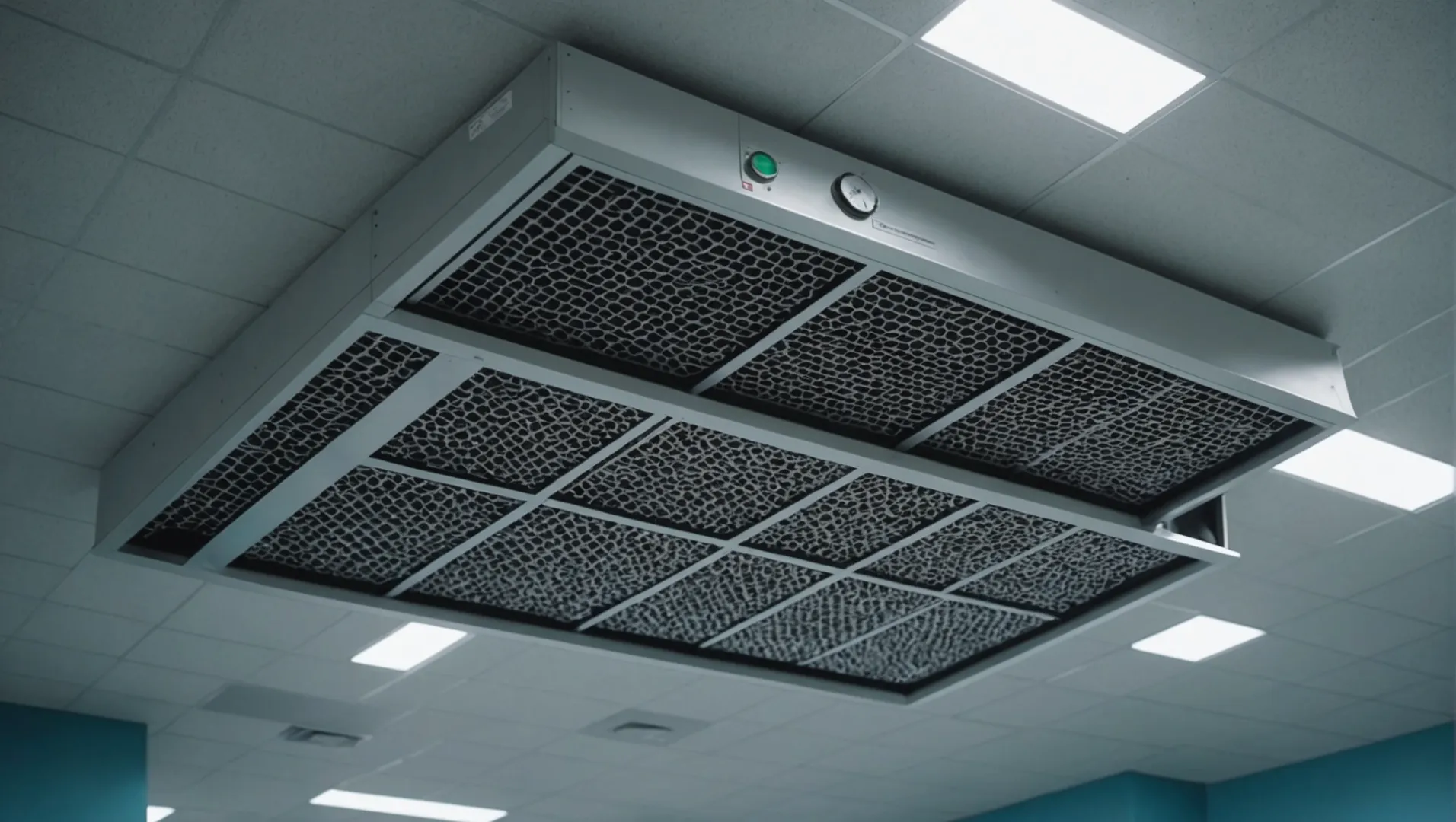
Comprendre HEPA Normes et règlements
HEPA Les filtres doivent répondre à des normes rigoureuses afin de garantir leur efficacité en matière de protection de la santé et de la sécurité. L'efficacité des HEPA La capacité des filtres à capturer des particules microscopiques est un facteur clé qui les aide à respecter les réglementations strictes établies par des autorités telles que l'Agence américaine de protection de l'environnement (EPA) et l'Organisation mondiale de la santé (OMS). Pour être conformes, ces filtres doivent démontrer leur capacité à piéger 99,97% de particules en suspension dans l'air d'une taille inférieure à 0,3 micron. Cette spécification est essentielle dans les environnements tels que les hôpitaux où les agents pathogènes en suspension dans l'air doivent être réduits au minimum.
Rôle des HEPA Filtres dans les environnements critiques
Dans des secteurs tels que les soins de santé et les produits pharmaceutiques, où le maintien d'un environnement stérile est crucial, HEPA Les filtres sont des composants essentiels des systèmes CVC. Ils garantissent que l'air est exempt de contaminants susceptibles de compromettre la sécurité des patients ou l'intégrité des produits. Par exemple, dans les salles d'opération et les salles blanches, HEPA Les filtres contribuent à maintenir un environnement conforme à des normes de propreté strictes en filtrant les particules potentiellement nocives.
Personnalisation pour des besoins réglementaires spécifiques
Personnalisation des HEPA permet de se conformer à des réglementations spécifiques pour différentes applications. Des fabricants comme HisoAir proposent personnalisé HEPA solutions1 pour répondre aux exigences uniques des équipementiers, en veillant à ce que chaque filtre réponde aux exigences réglementaires de l'environnement auquel il est destiné. Il s'agit notamment de concevoir des filtres ayant des capacités d'utilisation microbienne ou d'intégrer des matériaux durables tels que la poussière de café recyclée.
Matériaux et technologies innovants
Progrès en matière de HEPA Les matériaux et les technologies de filtrage contribuent de manière significative à la conformité avec les réglementations en matière de santé. Les matériaux à haute efficacité réduisent la résistance au flux d'air tout en maintenant l'efficacité de la filtration, ce qui permet d'obtenir de meilleures performances sans compromettre l'efficacité énergétique. Certains fabricants intègrent désormais des revêtements antimicrobiens qui empêchent la prolifération des bactéries à la surface des filtres, ce qui renforce encore les normes de sécurité que ces filtres peuvent offrir.
En comprenant ces aspects, les OEM peuvent choisir HEPA des filtres qui non seulement respectent les réglementations sanitaires en vigueur, mais qui s'adaptent également aux changements futurs et aux avancées technologiques.
Les filtres HEPA capturent 99,97% des particules de 0,3 micron.Vrai
Les filtres HEPA sont conçus pour piéger au moins 99,97% de particules en suspension dans l'air aussi petites que 0,3 micron.
Les filtres HEPA ne sont pas utilisés dans les hôpitaux.Faux
Les filtres HEPA sont essentiels dans les hôpitaux pour maintenir des environnements stériles en filtrant les particules nocives.
Quelles sont les options de personnalisation disponibles pour OEM HEPA Filtres ?
Les OEM ont des besoins uniques qui exigent des solutions sur mesure, en particulier lorsqu'il s'agit de HEPA des filtres. Découvrez les options personnalisables disponibles pour OEM HEPA des filtres.
OEM HEPA Les filtres offrent une personnalisation poussée de la conception, des matériaux, de l'efficacité et des caractéristiques spécifiques à l'application, afin de répondre aux divers besoins industriels.
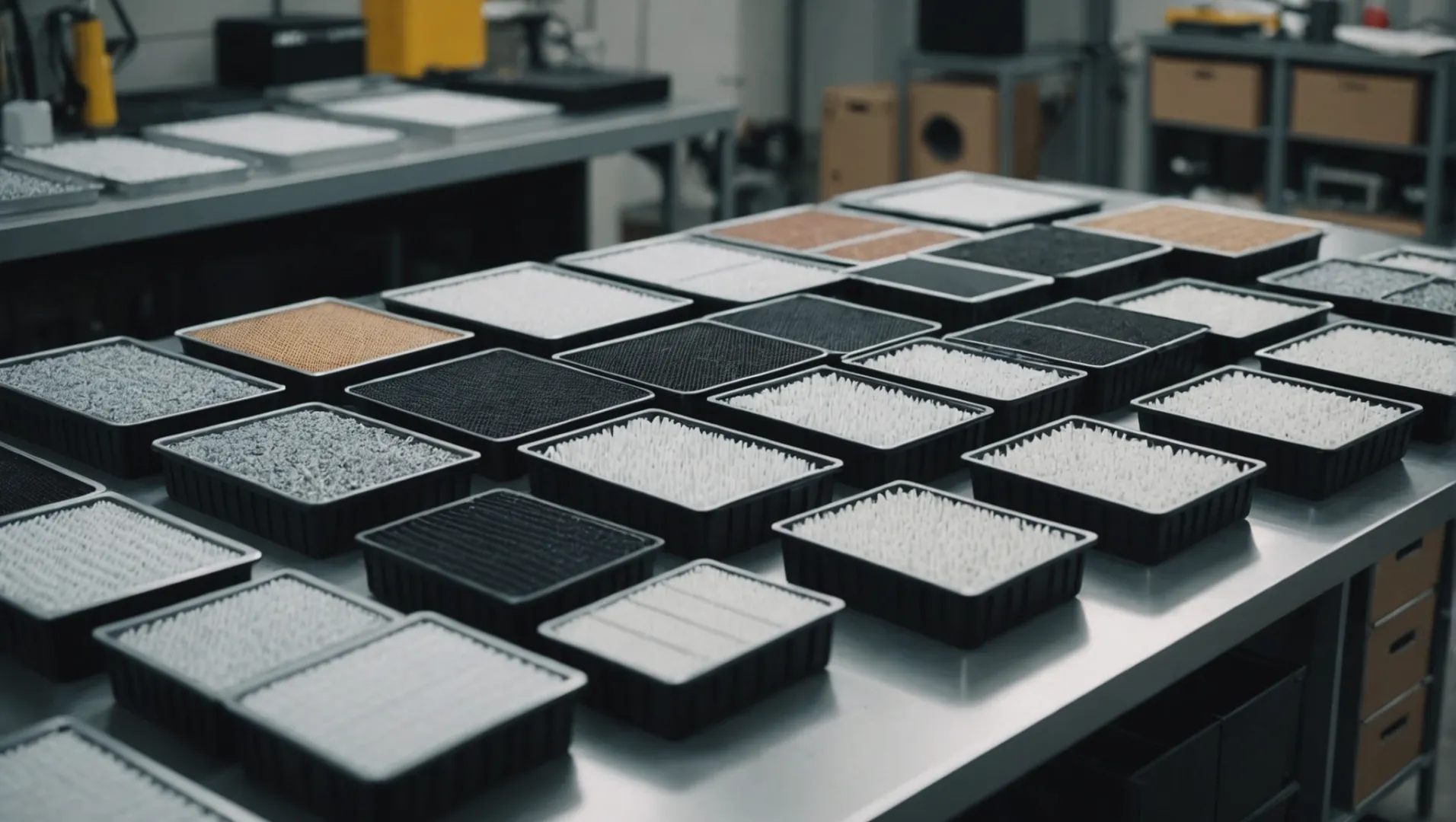
Adapter la conception à diverses applications
Les OEM peuvent personnaliser les conception2 de HEPA pour répondre à des applications spécifiques, qu'il s'agisse de purificateurs d'air résidentiels, de systèmes de chauffage, de ventilation et de climatisation ou d'équipements industriels. Cette personnalisation comprend l'ajustement de la taille, de la forme et du matériau du cadre du filtre afin de garantir sa compatibilité avec l'environnement d'utilisation finale.
| Élément de conception | Options de personnalisation |
|---|---|
| Taille et forme | Dimensions rectangulaires, circulaires ou personnalisées |
| Matériau du cadre | Aluminium, plastique, acier galvanisé |
| Produits d'étanchéité et joints | Mousse, caoutchouc, silicone |
Sélection des matériaux pour une meilleure performance
Les fabricants proposent des options pour personnaliser le matériaux3 utilisé dans le HEPA des médias. Il s'agit notamment de matériaux à haute efficacité qui offrent une faible résistance et des taux de capture des particules plus élevés. Certains choix innovants incluent l'intégration de poussière de café recyclée dans le média, offrant des solutions durables qui remplacent le charbon actif traditionnel.
Fonctionnalités avancées pour des utilisations spécialisées
Pour les équipementiers qui ont besoin d'applications spécialisées, par exemple dans le domaine médical ou industriel, HEPA Les filtres peuvent être améliorés par des revêtements microbiens ou d'autres caractéristiques technologiques. Ces innovations permettent de capturer et de neutraliser les agents pathogènes nocifs, garantissant ainsi la conformité aux normes strictes en matière de santé et de sécurité.
- Revêtements microbiens: Inhibe les bactéries et les virus à la surface du filtre.
- Milieux antimicrobiens: Enrichis d'agents qui tuent ou désactivent les microbes.
Équilibrage de l'efficacité et de la résistance
La personnalisation de l'équilibre entre l'efficacité du filtre et la résistance au flux d'air est cruciale pour optimiser les performances dans différents contextes. Cet équilibre permet d'obtenir une filtration maximale tout en maintenant la consommation d'énergie à un niveau raisonnable.
En savoir plus sur efficacité et résistance4 l'équilibrage pour comprendre comment ces facteurs affectent la performance des filtres dans les différentes industries.
Les filtres HEPA OEM peuvent être personnalisés pour des applications spécifiques.Vrai
Les OEM peuvent ajuster la taille, la forme et les matériaux pour répondre à des besoins uniques.
Les filtres HEPA ne peuvent pas comporter de caractéristiques antimicrobiennes.Faux
Les filtres HEPA peuvent être dotés d'un média antimicrobien et d'un revêtement microbien.
Quelles sont les avancées en matière de HEPA La technologie façonne-t-elle l'industrie ?
Découvrez les avancées révolutionnaires en matière de HEPA qui transforment la filtration de l'air et établissent de nouvelles normes industrielles.
Les progrès récents en matière de HEPA se concentrent sur les filtres microbiens, les matériaux durables et l'efficacité accrue. Ces innovations améliorent la qualité de l'air en capturant davantage de contaminants, en réduisant la résistance et en promouvant des pratiques respectueuses de l'environnement.

Infusion microbienne HEPA Filtres
L'une des avancées les plus significatives en matière de HEPA est l'intégration d'agents antimicrobiens dans les médias filtrants. Cette innovation améliore la capacité du filtre à piéger et à neutraliser les bactéries et les virus, ce qui le rend idéal pour les applications dans le domaine des soins de santé et des salles blanches.
L'incorporation de ces agents réduit le risque de croissance microbienne sur le filtre lui-même, prolongeant ainsi sa durée de vie et son efficacité. A titre d'exemple, HisoAir5 offre des services personnalisés HEPA des filtres dotés de capacités microbiennes adaptées à différentes applications, améliorant à la fois la sécurité et les performances.
Supports à haut rendement et à faible résistance
Un autre développement crucial est la création de supports à haute efficacité et à faible résistance. Les supports traditionnels HEPA ont souvent été confrontés à des problèmes de résistance à l'écoulement de l'air, ce qui pouvait avoir un impact sur la consommation d'énergie et les performances du système. Cependant, de nouveaux matériaux permettent d'augmenter le débit d'air tout en réduisant la perte de charge, ce qui permet de maintenir une excellente efficacité de filtration tout en optimisant la consommation d'énergie.
Grâce à ces améliorations, les équipementiers peuvent mettre en oeuvre HEPA sur une plus large gamme d'appareils sans sacrifier l'efficacité.
Matériaux durables dans les HEPA Fabrication
Le développement durable est devenu une préoccupation majeure dans de nombreux secteurs, y compris celui de la filtration de l'air. Les progrès récents en matière de HEPA L'utilisation de matériaux respectueux de l'environnement, tels que la poussière de café recyclée, pour remplacer le charbon actif conventionnel dans l'élimination des odeurs, fait partie de la nouvelle technologie. Cela permet non seulement de réduire la dépendance à l'égard des ressources non renouvelables, mais aussi d'améliorer le profil de durabilité des produits.
Par exemple, l'intégration de matériaux recyclés s'aligne sur les initiatives mondiales visant à réduire les déchets et à promouvoir des pratiques de fabrication écologiques.
Solutions personnalisées pour diverses applications
Personnalisation en HEPA La fabrication de filtres permet aux équipementiers de répondre à des besoins spécifiques, qu'il s'agisse de purificateurs d'air résidentiels, d'environnements industriels ou médicaux. En proposant des solutions sur mesure, les fabricants peuvent répondre à des normes réglementaires et à des exigences de performance variables selon les secteurs.
La capacité de personnalisation va au-delà de la taille et de la forme ; elle inclut la sélection de matériaux et de technologies spécialisés qui répondent à des conditions environnementales uniques et à des défis de contamination.
Ces progrès témoignent d'un engagement à améliorer la qualité de l'air, mais aussi à s'adapter à l'évolution des exigences des différentes industries. En adoptant ces technologies innovantes, les équipementiers peuvent s'assurer que leurs produits restent à la pointe des solutions de filtration de l'air.
Les filtres HEPA utilisent désormais de la poussière de café recyclée pour éliminer les odeurs.Vrai
La poussière de café recyclée est une alternative écologique aux matériaux conventionnels.
Les filtres HEPA imprégnés de microbes ne peuvent pas neutraliser les bactéries.Faux
Ces filtres sont spécifiquement conçus pour piéger et neutraliser les bactéries.
Pourquoi le développement durable est-il important ? HEPA Fabrication de filtres ?
Le développement durable transforme les industries et HEPA La fabrication de filtres ne fait pas exception. Découvrez pourquoi les pratiques durables sont cruciales dans ce domaine.
Le développement durable dans l'Union européenne HEPA La fabrication de filtres est importante pour réduire l'impact sur l'environnement, améliorer l'innovation des produits et répondre à la demande des consommateurs pour des solutions respectueuses de l'environnement. En utilisant des matériaux recyclés et en adoptant des processus à haut rendement énergétique, les fabricants peuvent créer des produits plus écologiques sans compromettre les performances.
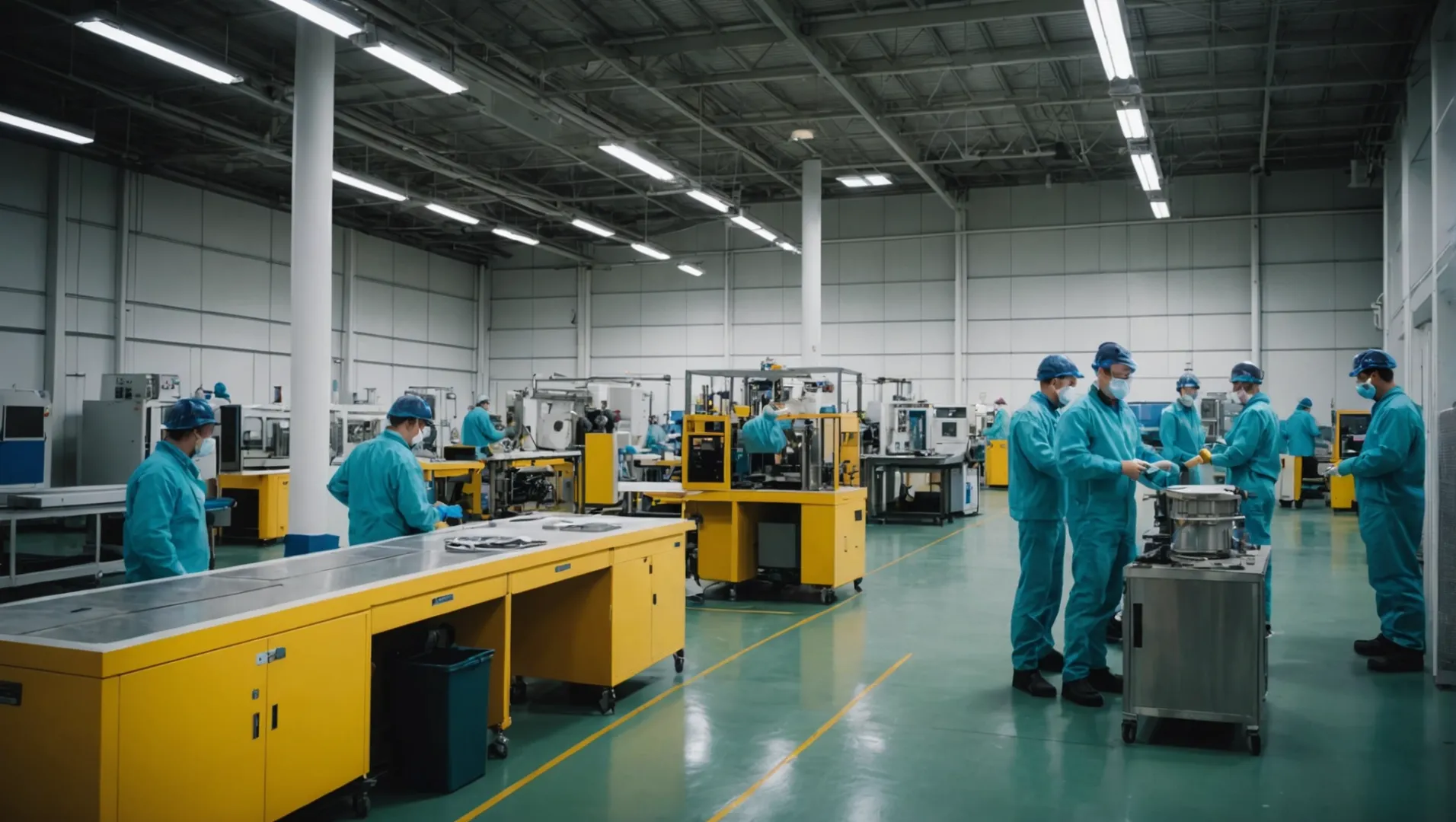
L'impact environnemental de la fabrication traditionnelle
Traditionnel HEPA La fabrication de filtres implique des processus qui peuvent avoir des effets néfastes sur l'environnement. Il s'agit notamment de la consommation de ressources non renouvelables et de la production de déchets au cours de la production. En s'orientant vers le développement durable, les fabricants peuvent atténuer ces impacts et contribuer à une planète plus saine.
Matériaux innovants en HEPA Filtres
L'une des avancées les plus intéressantes dans le domaine de la HEPA la fabrication de filtres est l'utilisation de matériaux recyclés6. Par exemple, l'incorporation de poussière de café recyclée dans HEPA offre une alternative viable au charbon actif. Cette innovation permet non seulement de réduire les déchets, mais aussi de maintenir la capacité du filtre à neutraliser efficacement les odeurs.
Répondre à la demande des consommateurs pour des produits respectueux de l'environnement
Avec la prise de conscience des problèmes environnementaux, les consommateurs recherchent de plus en plus des produits respectueux de l'environnement. En intégrant des pratiques durables, HEPA Les fabricants de filtres peuvent répondre à cette demande en rendant leurs produits plus attrayants pour les clients soucieux de l'environnement. Cette évolution permet non seulement d'ouvrir de nouveaux débouchés, mais aussi d'améliorer la réputation de la marque.
Avantages des procédés de fabrication économes en énergie
L'efficacité énergétique est la pierre angulaire de la fabrication durable. La mise en œuvre de technologies d'économie d'énergie dans les HEPA La production de filtres peut réduire considérablement l'empreinte carbone et les coûts d'exploitation. Ces pratiques garantissent que les avantages environnementaux s'étendent à l'ensemble du cycle de vie du produit, de la fabrication à l'utilisation finale.
Le rôle du développement durable dans l'innovation
La durabilité ne se limite pas à la réduction des dommages, c'est un catalyseur pour l'innovation. Le développement durable encourage l'exploration de nouveaux matériaux et de nouvelles technologies, ce qui permet d'obtenir des filtres plus performants et plus durables. Ce cycle d'amélioration continue est essentiel pour rester compétitif sur un marché qui évolue rapidement.
Les filtres HEPA durables utilisent de la poussière de café recyclée.Vrai
La poussière de café recyclée est utilisée comme alternative au charbon actif.
La fabrication traditionnelle HEPA réduit les nuisances pour l'environnement.Faux
Les procédés traditionnels consomment des ressources non renouvelables et génèrent des déchets.
Conclusion
HEPA sont essentiels pour maintenir la qualité de l'air et la sécurité dans les environnements critiques. En saisissant leur importance et les options de personnalisation, les équipementiers peuvent améliorer la fiabilité et la conformité de leurs produits. Envisagez d'intégrer des HEPA pour des performances optimales.
-
Découvrez comment HisoAir offre des solutions de filtres HEPA sur mesure pour la conformité.. : Des solutions sur mesure et de haute performance : Nous proposons des purificateurs d'air haut de gamme adaptés aux besoins de chaque client, garantissant une qualité d'air supérieure et dépassant les ... ↩
-
Découvrez les différents éléments de conception adaptables à des applications spécifiques.. : Vos filtres HEPA personnalisés sont ensuite conçus à l'aide d'AutoCAD et de SolidWorks pour produire une imagerie 3D de la dynamique des fluides. Nous produisons ensuite un prototype avec un ... ↩
-
Découvrez des matériaux qui améliorent les performances et la durabilité.. : Nous pouvons réaliser ce filtre HEPA sur mesure pour vous. Gamme personnalisée. Efficacité, De H10 à H14, U15. Matériau du cadre, Métal ou panneau de particules. Matériau du filtre ... ↩
-
Comprendre les compromis entre l'efficacité de la filtration et la résistance du débit d'air.. : Les filtres de type HEPA ont généralement des niveaux d'efficacité plus faibles, capturant des particules aussi petites que 2,5 microns, ce qui peut ne pas être aussi efficace pour éliminer ... ↩
-
Découvrez comment les propriétés antimicrobiennes améliorent l'efficacité des filtres et la durée de vie.. : Filtre HEPA antibactérien et antiviral. Modèle : F060. Composition du filtre : HEPA antibactérien et antiviral + cadre en papier cartonné noir + bande d'étanchéité T5. ↩
-
Découvrez comment les matériaux recyclés améliorent le respect de l'environnement et les performances du filtre.. : Le filtre à air briiv est entièrement fabriqué à partir de matériaux naturels tels que les bioplastiques et les matériaux recyclables tels que le carton et le verre, avec ... ↩


